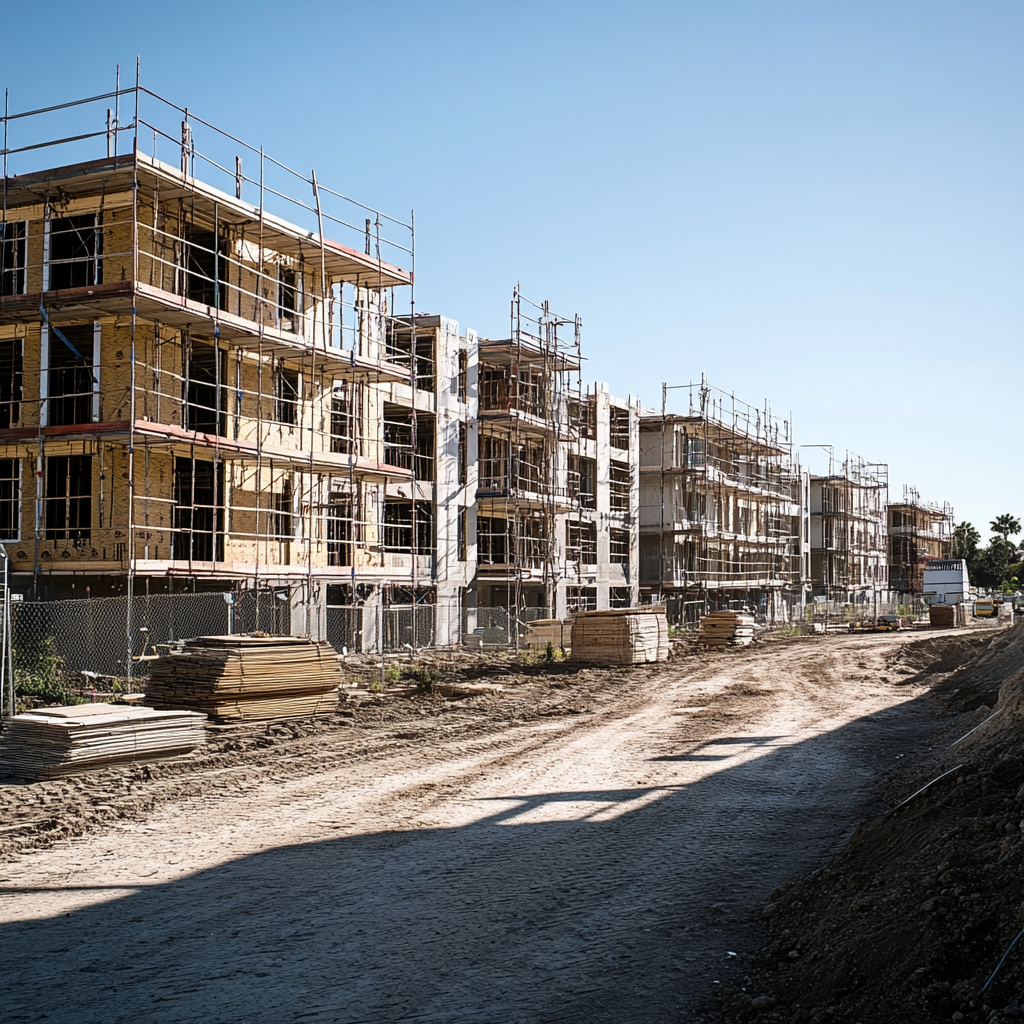The post, published by the Biden administration’s Council of Economic Advisers, correctly points out that discretionary permitting processes by their nature throw barriers before housing developments. This can slow or outright deter housing from being built.
“With discretionary permitting, the proposal is subject to the approval of a public body, such as local planning authority, which may require several re-designs, city council hearings, public outreach meetings, environmental impact studies, impact fees and other concessions,” the post explains.
By throwing all of these hurdles in the way of housing, cities which rely on discretionary permitting processes are by extension curtailing the national housing supply. They explain, “Permitting delays contribute to the nationwide housing shortage by increasing the cost of new housing development, leading would-be deals to not pencil out.”
The Council of Economic Advisers offers attention to some big West Coast cities which have borne this out. They point out that in recent years the median amount of time developers spent in the permitting process for multi-family housing development in Oakland has taken as long as eight months to get approved, in Los Angeles 13 months, in Seattle 16 months and in San Francisco 33 months. “These numbers may understate the burden since they exclude projects that never receive approval,” they added.
Los Angeles
Los Angeles Mayor Karen Bass briefly figured out what was necessary to get more housing built: allowing more housing to be approved by-right and in a swift manner. Mayor Bass used her executive power to order such for 100% affordable-housing projects, and for a while this yielded more housing. Speeding up the process, it turns out, helps bring more housing online. Shocker, I know.
The Los Angeles Business Council Institute estimated that had these faster reviews been available for all developments from 2010 to 2022, the city would have seen an increase in both the number of affordable (36.3%) and market-rate housing (31.9%) units than came online during that time.
Unfortunately, Bass has since scaled back this approach, excluded vast areas of the city from these speedy reviews, imposed new design mandates on housing projects, and is now hinting at throwing new labor mandates on top of it all.
Seattle
The Seattle City Council has likewise offered some reprieve starting last year for affordable housing developments and some developments participating in the city’s Mandatory Housing Affordability (MHA) program from the city’s design review process, a particularly onerous hurdle in the city’s permitting process.
The MHA program makes it easier for developers to up-zone, but only if they either include below market-rate housing in their project or pay an in-lieu fee. The results are mixed, with one report describing it as “a tax on some additional development.” While the MHA program should probably just be scrapped, the temporary exemption for MHA participants could speed things up and make a tangible difference.
As explained by local organization Futurewise, “Design review is a process set up by the city that allows community members and city officials to provide feedback on the exterior design of new construction.” However, “design review can add years and hundreds of thousands of dollars to the construction process, slowing down the production of desperately needed new housing in Seattle.”
The city’s design review process has derailed many otherwise viable housing projects.
Reported PubliCola in 2022: “For months, an unelected board debated the color and style of brick on a grocery store and apartment complex in Queen Anne. Wealthy residents of an apartment tower in Belltown bogged down the construction of an apartment tower next door by insisting the design include more curves to match its architectural context. And a new multi-family building on Capitol Hill had to be redesigned because it looked ‘too historic.’”
If Seattle really wants to help get more housing, the city could just scrap the design review process entirely.
San Francisco
San Francisco, meanwhile, has been legendarily slow at approving housing developments.
“When housing advocates and developers talk about how long it takes to get permits to build
housing in San Francisco, they don’t speak in increments of days, weeks or months,” began a San Francisco Chronicle news story in December 2022. “They speak in years.”
“And they’re not exaggerating,” the Chronicle found. San Francisco entrepreneur Bilal Mahmood documented the labyrinthine process developers must go through to get started, identifying “87 permits San Francisco’s housing element identified that a project needs to apply for in order to begin development” across multiple government departments.
Unsurprisingly, this has long meant that San Francisco has built far less housing than it needs.
While a recent state law (Senate Bill 423) now requires San Francisco to more swiftly approve developments which meet certain standards, the city likely won’t see relief for a while. In July, Axios, citing Census data, reported that “The San Francisco metro area is on track to permit fewer new housing units this year compared to 2023.”
Oakland
Oakland’s problems are many. Despite having many of the same counterproductive housing policies as San Francisco, including rent control, the permitting processes have been much faster in Oakland. That said, the process hasn’t been without its problems.
Developer Mark McClure, who once served on the city’s planning commission, told real estate outlet Bisnow in 2018 about how challenging the process can be in blunt terms: “Let’s not sugarcoat that the process sucks. We reach the right outcomes, but it comes at too high of a cost.”
He recalled one story in which “a local developer worked on a project that checked every single box, including on-site affordable housing and $22 million in community benefits, but still had to battle with the community to get the project through entitlements.”
City leaders have long paid lip service to the idea of speeding up permitting processes, especially in response to the prodding by the state.
Mayor Sheng Thao has called for more ministerial approvals, appointed a permits ombudsman, and has overseen the automating of small but time-consuming permits which developers hope will free up city staff time to review larger projects. Good ideas. Unfortunately, Thao is also under federal investigation and is facing a pending recall.
Oakland can’t catch a break.
Conclusion
The Biden White House gets it right, “Permitting reform is just one important step towards accelerating housing construction and eliminating the housing shortage.” As seen in the case of the cities it highlighted above, there’s a lot of work to do.
Sal Rodriguez is opinion editor for the Southern California News Group and a senior fellow with the Pacific Research Institute. He is the author of Dynamism or Decay? Getting City Hall Out of the Way, published by the Pacific Research Institute.


